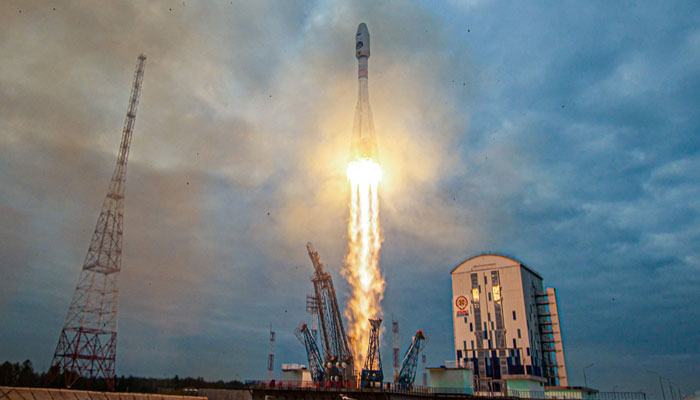Russia's Luna-25 moon mission failure: What went wrong?
After entering the moon's orbit on August 16, the spacecraft was poised for a soft landing on August 21
August 20, 2023

Russia's ambitious endeavour to mark its return to moon exploration got a setback as its Luna-25 spacecraft experienced a malfunction and crashed on the moon's surface.
Here's a comprehensive overview of the mission and its ramifications.
Luna-25 mission overview
The Luna-25 mission aimed to reignite Russia's lunar exploration following a lengthy hiatus since the Soviet Union's Luna-24 mission in 1976.
Launched from the Vostochny Cosmodrome, the Soyuz 2.1 rocket carrying Luna-25 embarked on its journey on August 11. After entering the moon's orbit on August 16, the spacecraft was poised for a soft landing on August 21.
Unanticipated setback
Russia's state space corporation, Roskosmos, disclosed that an "abnormal situation" transpired during an attempt to transition the craft into a pre-landing orbit.
Communication with the spacecraft was lost shortly thereafter. In an official statement, Roskosmos confirmed that Luna-25 met an untimely end due to a collision with the lunar surface.
Implications for Russia
The failure of the high-profile Luna-25 mission underscores Russia's diminished status in the space arena, in contrast to its historic achievements during the Cold War era.
The mission's downfall highlights challenges in Russia's economic landscape, although President Vladimir Putin maintains that the economy remains resilient.
This setback also illuminates the pressure on Russia's economy, which has navigated sanctions and geopolitical tensions. Amid these adversities, Russia's space program seeks to reclaim its former glory.
Previous lunar missions, including the 2011 Fobos-Grunt endeavour, which fell short of escaping Earth's orbit, reveal the intricate challenges facing Russia's space aspirations.
The road to Luna-25 was marked by delays stemming from the aftermath of the Soviet Union's dissolution and ensuing political and economic turmoil. As Russia forges ahead in its lunar aspirations, the Luna-25 incident serves as a poignant reminder of the complexities inherent in space exploration.
While the Luna-25 mission encountered unforeseen obstacles, its reverberations across Russia's space endeavours and scientific ambitions will likely spark renewed determination to overcome challenges and strive for lunar exploration success.











